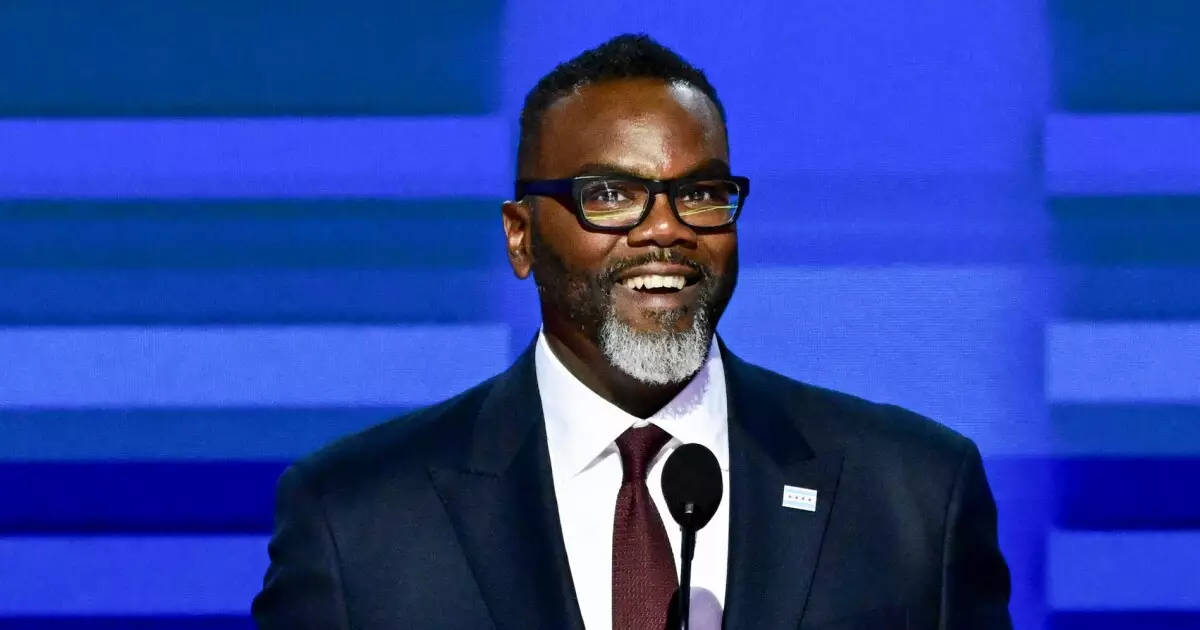The recent budget forecast released by the city of Chicago is projecting a significant increase in the corporate fund deficit in the coming years. The deficit is expected to balloon to $982.4 million by 2025, a stark contrast from the $222.9 million shortfall projected at the end of 2024. Mayor Brandon Johnson’s administration presented both downside and upside scenarios for future years. The negative outlook paints a grim picture with a projected $1.578 billion gap between revenue and expenditures in 2026 and an even more staggering $1.928 billion gap in 2027. On the other hand, the positive scenario offers a slightly less dire perspective, estimating a $633.8 million deficit in 2026 and a $702.6 million deficit in 2027.
The budget forecast has raised concerns among investors and bond raters about the city’s financial stability. While Chicago has seen some improvements in its fiscal standings in recent years, thanks to pandemic relief funding and increased pension contributions, the looming deficit poses a significant challenge. Municipal Market Analytics expressed doubts about the market demand for the city’s bonds, given the magnitude of the deficit. Matt Fabian, a partner at MMA, highlighted the necessity of recurring solutions to address the city’s persistent financial woes. The reliance on one-time fixes and the lack of foresight regarding economic downturns have exacerbated the current situation.
The city’s forecast attributes the revenue shortfall to various factors, including changes in how corporations net their operating losses, State Personal Property Replacement Tax revenue, and pension reimbursements for Chicago Public Schools. These elements have contributed to the current imbalance between revenue and expenditures. Moving forward, both revenue and spending factors are expected to drive the projected deficits in future years. Howard Cure, partner and director of municipal bond research at Evercore, highlighted Chicago’s diverse economic landscape, citing ongoing development projects like the U.S. Defense Department research lab expansion and the modernization of O’Hare Airport as positive indicators amid the financial challenges.
The city is facing multiple challenges, including issues with Chicago Public Schools, the Chicago Transit Authority, and the handling of the migrant crisis. Unresolved teachers’ contracts, rising operational costs, and uncertain funding sources pose significant hurdles for the city and its affiliated entities. Cure expressed concerns about the sustainability of current strategies, such as a proposed hiring freeze and potential cuts to departmental personnel. The city’s approach to pension funding, property taxes, and revenue generation will also be critical in determining its financial resilience in the years to come.
As the city grapples with its budget forecast, the impact on bond markets and investor confidence remains uncertain. While recent bond issuances have shown strong demand, the city will need to navigate carefully to find a balance between borrowing costs and fiscal responsibility. Mayor Brandon Johnson’s emphasis on recurring budget solutions underscores the need for sustainable financial practices. Finding a comprehensive and strategic approach to address the city’s financial challenges will be crucial in maintaining long-term stability and investor trust.

